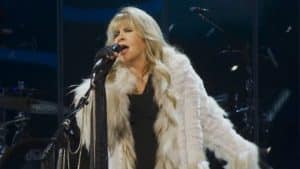7 1970s Hit Songs That People Today Would Find “Offensive”

Image via images2.houstonpress.com
The 1970s feel like a distant past, and revisiting that era shows just how much has changed. From groovy fashion to questionable lyrics, some ’70s songs wouldn’t fly today.
The list below highlights seven tracks that clash with modern values. Whether for racist or misogynistic undertones or themes like underage relationships and reckless drinking, these songs feature artists like Elton John and the Rolling Stones. They remind us how far we’ve come—and how much work is still ahead.
“Brown Sugar” by The Rolling Stones (1971)
“Brown Sugar” may initially appear to be about a white man objectifying Black women, which is already problematic. A deeper listen, however, shows something much darker. The song recounts a story that has its roots in slavery and describes the horrifying mistreatment of Black women, such as their owners beating and raping them. The shocking opening lines are:
“Gold Coast slave ship bound for cotton fields/Sold in a market down in New Orleans/Scarred old slaver, know he’s doing alright/Hear him whip the women just around midnight.”
Even Mick Jagger, the band’s frontman and co-writer, has expressed regret about the song. “God knows what I’m on about in that song. It’s such a mishmash. All the nasty subjects in one go,” he told Rolling Stone in 1995 (via Far Out Magazine). “I never would write that song now.” He added, “I would probably censor myself. I’d think, ‘Oh God, I can’t. I’ve got to stop. I can’t just write raw like that.’”
The Rolling Stones last performed “Brown Sugar” live in 2019, and by 2022, it seemed to have quietly faded from their setlist, as reported by The Independent.
“Woman Is the [N-word] of the World” by John Lennon and Yoko Ono (1972)
Even in 1972, this song sparked plenty of outrage—and it’s even more shocking by today’s standards. John Lennon and Yoko Ono aimed to make a feminist statement about the oppression of women, but their approach involved repeatedly using a racial slur in the title and lyrics.
The song’s lyrics include lines like: “When she’s young we kill her will to be free/While telling her not to be so smart we put her down for being so dumb” and “Woman is the [expletive] of the world, yes she is/If you don’t believe me take a look to the one you’re with/Woman is the slave to the slaves.”
As Far Out reported, some radio stations refused to play the song. Lennon defended it in interviews, explaining that the title came from a quote Ono had given years earlier. “Obviously there were a few people that reacted strangely to it, but usually they were white and male,” Lennon said. He also argued that the meaning of the slur had evolved, claiming, “I think the word [n-word] has changed and it does not have the same meaning that it used to.” Lennon further justified its use by saying his Black friends told him he had the “right” to use the word.
“Half-Breed” by Cher (1973)
The popular song “Half-Breed,” which was written from the viewpoint of a lady navigating life as half Native American and half white, was published by Cher in 1973. That year, it also served as the album’s title tune. Cher’s father was Armenian, but according to ET Canada, she has some Native American blood from her mother, even if her origin is primarily European.
Racial rejection is reflected in the song’s lyrics, which include the lines “Half-breed, that’s all I ever heard” and “My father married a pure Cherokee/My mother’s people were ashamed of me.”
Cher’s use of exaggerated and culturally inappropriate Native American outfits in the song’s music video and live performances further fueled the debate.
In 2017, Cher acknowledged the song’s problematic nature on Twitter: “I Did Song 50 yrs ago,& it wasn’t meant 2 [be] offensive. However, That’s kinda Bull [expletive] excuse. Need to retire beautiful Costume, & stop singing it, it’s WAY past time.” Despite this, she included the song in her 2018 tour setlist, sparking mixed reactions.
“Island Girl” by Elton John (1975)
“Island Girl” by Elton John relates the tale of a Jamaican sex worker in New York City and the wish of a Jamaican man to “rescue” her and return her to his island. Even though the song was popular in 1975, its words still cause controversy, particularly given that a white Englishman performed them.
Lyrics like “Island girl/What you wanting with the white man’s world?” and “Well she’s black as coal, but she burn like a fire/And she wrap herself around you like a well-worn tire” are included in the song, which was co-written with Bernie Taupin and is a part of their long-running partnership.
Elton John hasn’t played “Island Girl” live since 1990, which is interesting. Although he hasn’t explained why, Rolling Stone pointed out that it wasn’t on his set lists, which would indicate that people’s understanding of the song’s themes has changed.
“Christine Sixteen” by Kiss (1977)
Kiss’s “Christine Sixteen” is as controversial as its title suggests. The song, written by frontman Gene Simmons when he was 27, tells the story of an older man pursuing a 16-year-old girl.
The lyrics are straightforward:
“I don’t usually say things/Like this to girls your age/But when I saw you coming/Out of the school that day/That day I knew, I knew/I’ve got to have you.”
Unsurprisingly, some radio stations banned the song upon its release, deeming it inappropriate. Despite this, it still climbed the Billboard Hot 100, becoming a hit.
Simmons later explained how the song came to be, sharing a lighthearted moment with bandmate Paul Stanley. “I said to him, ‘All you ever do is write girl songs like “Christine Sixteen,”‘ and it just came out of my mouth,” Simmons told Rolling Stone in 2016. “He said, ‘Hey, that’s kind of cool,’ so I went home and wrote it.”
“Cruisin’ and Boozin'” by Sammy Hagar (1977)
Sammy Hagar’s “Cruisin’ and Boozin'” feels like a relic from a time when drinking and driving wasn’t taken as seriously as it is today. Released long before stricter laws came into play, the song openly celebrates hitting the road with a drink in hand.
Hagar sings:
“We’re just cruisin’ and boozin’/Trying to have a good time. We drink nothin’ but the best/Pop a buck in the gas tank/We drink up the rest.”
To put things in perspective, in 1985—nearly a decade after the song’s release—the Los Angeles Times noted that 26 states still allowed people to drink alcohol while driving, as long as they stayed under certain blood alcohol limits. It’s a far cry from today’s zero-tolerance culture.
“Some Girls” by The Rolling Stones (1978)
The Rolling Stones opened this list, and they’re closing it too. Their 1978 song “Some Girls” stirred up plenty of controversy with its lyrics, which leaned heavily on misogynistic and racial stereotypes. Mick Jagger sings about women of various backgrounds, including lines like:
“White girls they’re pretty funny, sometimes they drive me mad.
Black girls just wanna get [expletive] all night, I just don’t have that much jam.
Chinese girls are so gentle, they’re really such a tease.
You never know quite what they’re cookin’, inside those silky sleeves.”
Unsurprisingly, the song faced backlash. Activist Jesse Jackson called it a “racial insult” that “degrades Blacks and women,” and some radio stations refused to play it.
In response, the band stated the song was intended as a parody of stereotypes and apologized for any offense. They altered some of the more offensive lyrics during their 2008 Shine a Light documentary performance.

























